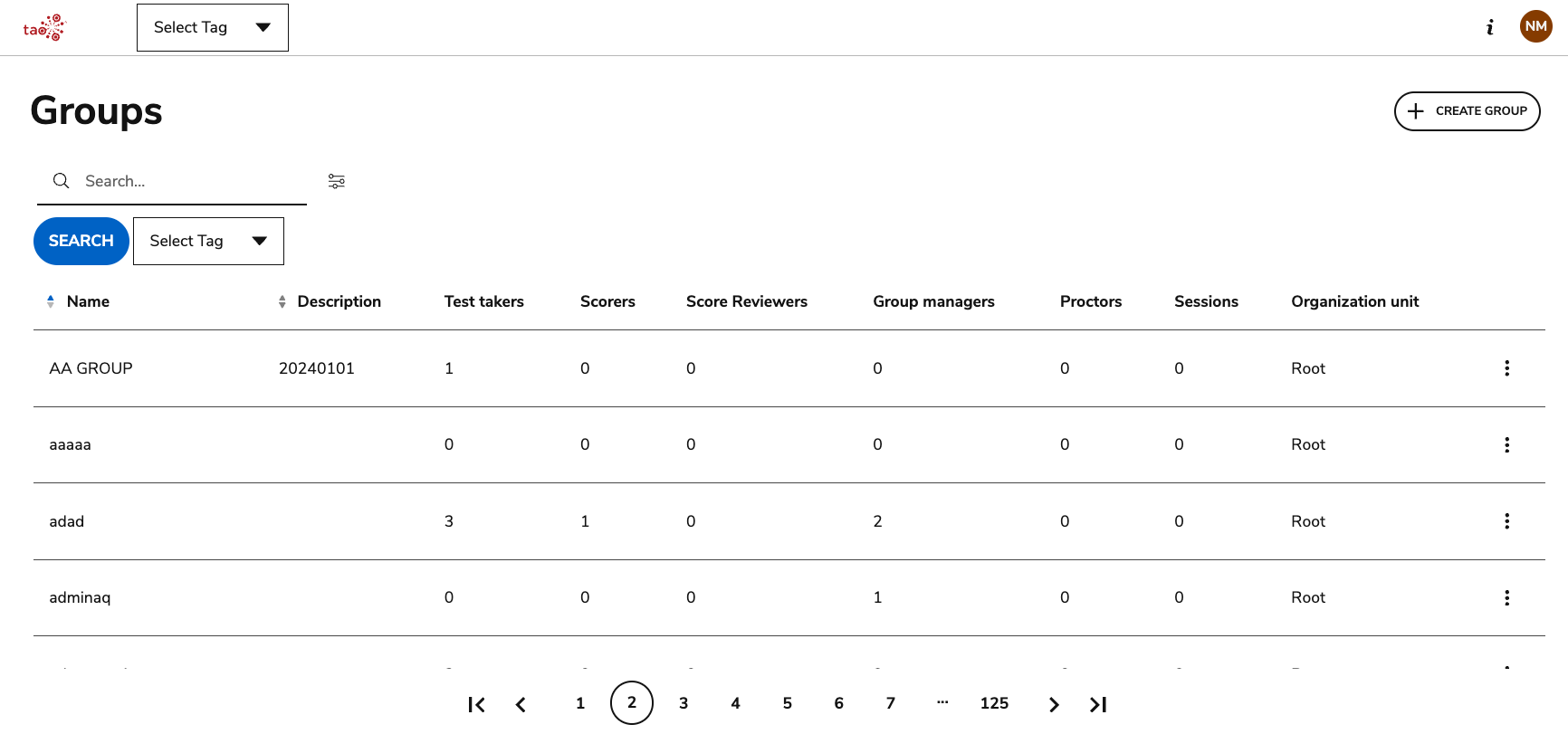Group management
Groups can be created by both Admins and Group Creators. For more information on group-related roles, see Global and Group roles.
Groups management can be accessed via the Groups tile upon login, or via the side bar menu (Groups).
The image below shows the Group management landing page:

Groups management landing page
Admins will see a list of all groups in their organizational unit (and any units under it). Group Managers see a list of all groups where they are assigned as a Group Manager. Scorers can see a list of all groups where they are assigned as a Scorer, even though they will not have all the functionality available to a Group Manager.
The Groups management page displays the following information for all groups the user has access to:
Name: The name assigned to a group. Names can be updated.
Description: A brief description of a group’s users and/or purpose.
Test-takers: Displays how many Test-takers are in a group.
Scorers: Displays how many Scorers are in a group.
Group managers: Displays how many Group managers are in a group.
Sessions: Displays how many sessions are associated with a group.
Organizational unit: Displays which organizational unit (OU) a group is assigned to. For more information, see Organization management.
The list can be ordered by Name or Description.
Using search in Group management
The search box on top-left of the table can be used to search groups by Name or Description. You can also opt to only include active groups in the search.
The match occurs against every word typed in the field. For example, if you are looking for the group “Honors Algebra”, you could type either ‘Honors’ or ‘Algebra’.
If you type more than one word, the search will use each word individually and return records that match either one of the words or both.
The search will return all records of each typed word in both group names and descriptions.
Search tries to fix typos and incomplete terms.
Search replaces most special characters with spaces, transforming the search term and the record's value into a multi-word string. This means that, for example, a search for the input ‘Honors/AP Algebra' would be treated similarly to 'Honors AP Algebra’.
Related links:
